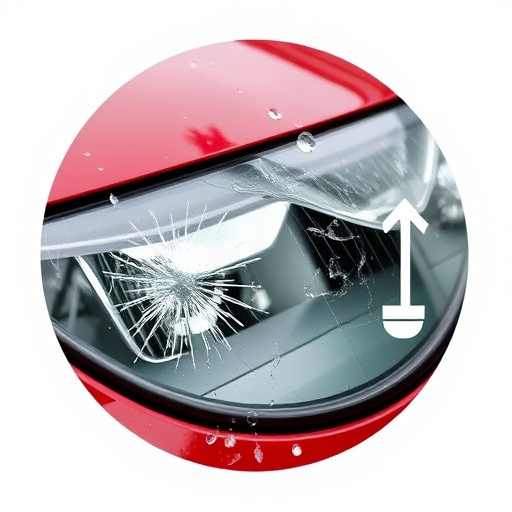The ultrasonic thickness gauge is a game-changer in non-destructive testing, offering precise material analysis across industries. Its key application lies in the automotive sector for body panel repairs, ensuring quality control and structural integrity while minimizing waste. This technology is also valuable in machinery construction, storage tanks, and aircraft components, enhancing productivity and safety.
“Unleash the power of precision with ultrasonic thickness gauge technology, a game-changer in industrial innovation. This advanced metric tool transcends traditional measurement methods, offering accurate and non-destructive assessments. From bustling manufacturing hubs to vibrant laboratories, ultrasonic thickness gauges are transforming various sectors.
Explore their real-world applications: discover how these devices enhance quality control, facilitate material analysis, and revolutionize industrial processes. Get ready to dive into the future of thickness measurement.”
- Industrial Applications of Ultrasonic Thickness Gauge
- Quality Control Using Ultrasonic Thickness Gauges
- Material Analysis and Non-Destructive Testing Methods
Industrial Applications of Ultrasonic Thickness Gauge

The ultrasonic thickness gauge has found its way into various industrial sectors, revolutionizing quality control and material analysis processes. One of its most prominent applications lies in the automotive industry, specifically in car bodywork and auto body repairs. This non-destructive testing method enables precise measurement of metal panels’ thickness, ensuring the integrity of vehicle structures. It plays a crucial role in identifying damage or variations in panel thickness during manufacturing and repair processes, facilitating accurate quality standards.
Beyond car bodywork, the ultrasonic thickness gauge is valuable in industries where material thickness precision is critical. In applications such as constructing machinery, storing tanks, and even aircraft components, this technology ensures consistency and reduces wastage. Its ability to provide real-time measurements makes it an efficient tool for streamlining production lines and enhancing overall industrial productivity.
Quality Control Using Ultrasonic Thickness Gauges

In the realm of manufacturing and automotive industries, quality control is paramount to ensure product excellence and safety. Ultrasonic thickness gauges play a pivotal role in this process by offering an advanced, non-destructive testing method. These precise instruments measure the thickness of materials accurately, enabling manufacturers and collision repair centers to maintain high standards. By employing ultrasonic technology, technicians can quickly assess the integrity of car bodywork, ensuring every panel is in optimal condition before assembly or repair.
This innovative approach is particularly beneficial for complex vehicle dent repair processes. With precision down to fractions of a millimeter, ultrasonic thickness gauges help identify subtle variations in material depth, crucial for successful collision repair. This ensures that repairs are not only visually appealing but also structurally sound, enhancing the overall quality of car bodywork. In today’s market, where quality and safety are paramount, ultrasonic thickness gauge technology stands as a game-changer, fostering precision and reliability across various industries.
Material Analysis and Non-Destructive Testing Methods

Material analysis and non-destructive testing (NDT) methods are pivotal in various industries for ensuring quality control and safety. One innovative tool that has gained significant traction is the ultrasonic thickness gauge, a technology that offers accurate measurements without causing damage to the material. This NDT technique uses high-frequency sound waves to determine the thickness of materials, making it invaluable in diverse sectors such as manufacturing, construction, and automotive industries like collision centers and automotive collision repair shops.
In the context of vehicle bodywork, ultrasonic thickness gauges play a crucial role in identifying structural integrity issues that might be hidden beneath the surface. Collision centers can leverage this technology to swiftly assess damage after accidents, enabling efficient repairs without compromising the original material properties. This non-invasive method is particularly beneficial for materials prone to corrosion or those that require precise thickness measurements, ensuring that every repair step aligns with industry standards and safety protocols.
Ultrasonic thickness gauges offer a versatile and efficient solution for various real-world applications. From industrial manufacturing to quality control, these non-destructive testing methods provide accurate material analysis, ensuring precision and reliability. By leveraging this technology, industries can streamline processes, reduce waste, and enhance overall productivity, making ultrasonic thickness gauges an indispensable tool in today’s competitive marketplace.













